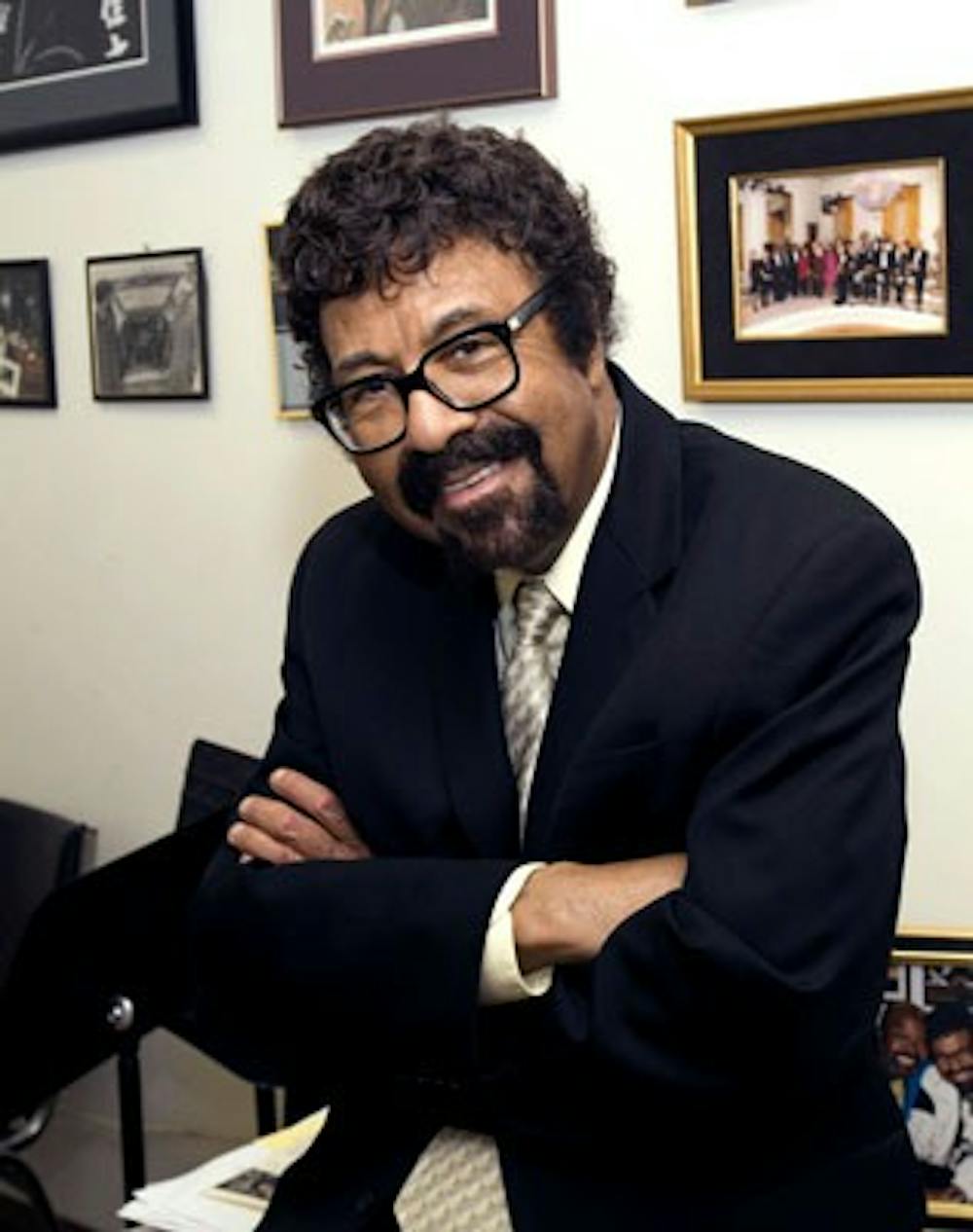David Baker began teaching at IU in 1966 when Wilfred Bain, then the dean of the Jacobs School of Music, was starting a jazz studies program.\n“I was not the first one offered the job,” Baker said, “but I was the first to accept.”\nTwo years after he was hired, IU began offering a jazz degree, Baker said. The teaching of jazz in schools was in its infancy at the time, and not much information was available about how to teach and play it, he said. In the early years, he said, people were pessimistic about the teaching programs because of the improvisational nature of jazz. \n“Anybody who wants to learn to improvise can be taught,” Baker said.\nBaker, the chair of the Jazz Studies Department and a distinguished professor of music, said he has probably taught 700 or more students. His students include jazz trumpet player Freddie Hubbard, 13-time Grammy Award winner Michael Brecker and Randy Brecker, who has performed and recorded with Bruce Springsteen, Frank Zappa and Blood, Sweat & Tears. Baker said teaching jazz allows him to teach things that took him 20 years to learn to someone else in one year.\nOne of the things Baker has learned in his lifetime is how to adapt to circumstances that were out of his control. When Baker was playing the trombone and touring with people such as American jazz composer and theorist George Russell and 70-time Grammy Award nominee Quincy Jones, he knew his time playing that instrument was coming to an end.\nIn 1953, Baker was in a serious car accident that caused damage to his face. Baker said the muscles on one side of his jaw after the accident became constantly weaker, while the muscles on the other side became stronger.\n“All I was concerned about was what the ramifications were as far as my career,” Baker said. “I felt helpless.”\nBaker was able to continue his career as a trombone player until 1962. He was able to play again briefly in 1971, but his injury sprang up and he knew his career was over.\n“It’s usually fruitless to look back because we can’t change anything that has already happened,” Baker said.\nBaker said one of his first inclinations was to ask “Why me?” But he later found irony in his question.\n“In ’62 I won the Down Beat magazine new star award for trombone, which was the same year I had to quit,” Baker said. “We don’t say ‘Why me?’ when good things happen.”\nWhile Baker was playing the trombone, he knew he would ultimately have to quit, so he decided to learn to play a new instrument. Baker was doing private teaching in his hometown of Indianapolis when he began teaching himself cello. But he says it’s tough to master an instrument if you learn to play it later in life. “(But) if you’re going to be a serious string player, you need to start before you’re 10 years old,” Baker said. “I was long past that.”\nSince then Baker has been nominated for a Grammy Award, commissioned by more than 500 individuals and ensembles as a composer, and received numerous awards. His latest award is the John F. Kennedy Center for the Performing Arts’ “Living Jazz Legend Award” for lifetime achievement, which he received last month in Washington, D.C.\nBaker said his best advice for undergraduate students is to do a lot of looking around before they settle on something. \n“The time to explore is before your life has settled into a more sedentary and predictable situation,” Baker said.
Jacobs professor recognized as ‘Living Jazz Legend’ for decades of devotion
Accident, change of instruments never stood in way

Get stories like this in your inbox
Subscribe




